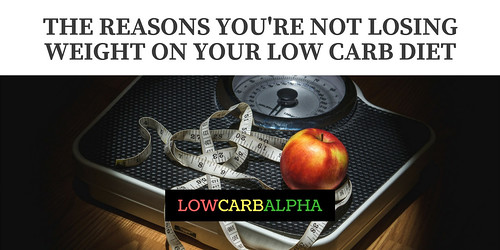A lot of people often wonder why they eat so little and still gain weight, while others seem to eat everything and stay slim. It’s actually a frustrating experience. But the answer lies in biology, and understanding that biology may be one of the most compassionate things you can do for yourself.
Let’s start with metabolism. Each person has a unique metabolic rate. Some people naturally burn food, or calories, faster at rest due to higher levels of muscle mass, age, or even how their organs function. Others have slower metabolic systems that conserve energy, meaning they burn fewer calories even when eating less. The body is not a calculator. It is a complex system influenced by thousands of factors.
Metabolic rate refers to how quickly your body converts food into energy. It determines how many calories your body burns just to stay alive. It keeps your heart beating, your lungs breathing, and your cells functioning, even when you’re at rest. This baseline is called your Basal Metabolic Rate, or BMR.
Your metabolism is not just about what you eat. It is also about how your body is wired, how much muscle you have, how you move, and how your hormones function. This is why two people can eat the same plate of jollof rice and turkey, and one will burn it off while the other stores it as fat. This is not because of laziness or lack of effort, but because of biology.
Two people can eat the same food and burn it at different speeds, and here’s why. Let’s look at a few factors. First is muscle. Your muscle burns more calories than fat, even when you are resting. More muscle equals a higher BMR. This is one reason men often burn food faster than women, because they naturally have more muscle mass.
Another factor is genetics. Some people are genetically programmed to burn food faster. They may have higher activity in energy-burning cells, such as brown fat, or the parts of their cells that turn nutrients into energy may be more active. Others may have faster digestion or better hormonal sensitivity, like insulin or thyroid hormones. All these inherited traits can make you metabolically fast or slow, even before lifestyle plays a role.
Genetics plays a critical role. Research shows that your weight set point, the range your body fights to maintain, is heavily influenced by your genes. If your family has a history of being heavier or lighter, chances are your body may reflect that pattern despite your efforts. That is why two people on the same diet and exercise plan can have completely different results. Your body’s response is not just about willpower. It is also about wiring.
I once wrote two series on childhood obesity in Mental Health Diary, and they remain among the most engaging articles I have received feedback on. In those articles, I explained the genetic factor. Let me paraphrase a line from the piece. Genetics can influence a child’s propensity to gain weight, but the risk is usually worsened by lifestyle habits. If a child is overweight, and
many parents do not know what to do, understanding their genetic tendency early can help guide choices around food and activity. You will be amazed at how much a child can fight against being overweight if they have that knowledge early. I also talked about how children can be introduced to movement and healthy eating in a way that supports lifelong habits.
Knowing that being overweight runs in your genes should not discourage you. It should motivate you to be more intentional about your lifestyle choices. It is a real struggle, I know. It is not easy, because mentally, the brain is often conditioned to associate comfort and joy with sugary or rich foods. But this is where you learn to pause and think about the long-term consequences. Let that reflection deter you from overindulging.
Age is another major factor. As we grow older, muscle mass naturally decreases, and metabolism slows down. This is why people often say they gain weight more easily in their thirties, forties, and beyond, even if they are eating the same amount as before.
Thyroid function also plays a significant role. The thyroid gland produces hormones that regulate metabolism. An overactive thyroid speeds up metabolism and causes rapid weight loss. An underactive thyroid slows it down, making people gain weight easily while also feeling tired. Stress hormones like cortisol also affect weight by slowing metabolism and encouraging fat storage. Insulin resistance makes it harder for your body to burn sugar effectively. And then there are hormones like leptin and ghrelin, which regulate hunger and fullness and influence how your body stores or burns energy.
Hormones are powerful messengers. They control everything from hunger to energy balance. When you are chronically stressed, your body produces more cortisol. This hormone increases appetite and promotes fat storage, especially around the belly. Low thyroid hormone levels can make you feel tired and sluggish, making exercise harder. Imbalances in estrogen, insulin, or leptin can make weight regulation even more difficult. In some cases, what you need is not another diet, but a blood test and medical support.
Now add the emotional toll. Chronic stress, poor sleep, and mental health struggles complicate things further. When you are anxious, depressed, or not sleeping well, your hunger cues get mixed up. You may crave sugar, skip meals, or eat emotionally. Not because you are weak, but because your brain is trying to cope. Then comes the guilt. And the cycle continues.
Many women silently battle this cycle. Doing everything right yet feels like a failure. But your body is not your enemy. It is responding to your environment, to your history, to your pain.
When it feels safe, rested, and nourished, it functions better. That is why weight loss is not just a physical journey. It is also a psychological and emotional one.
Next week, we will wrap up this series by offering practical and realistic steps to build a healthier body image and support weight loss, if you truly need to, without punishing yourself or harming your body in the process. Until then, be gentle with yourself. You a not a machine. You are a living, feeling person, deserving of understanding, care, and grace.
READ ALSO: Bitter leaf can contribute to promoting weight loss — Experts
Provided by SyndiGate Media Inc. (
Syndigate.info
).







